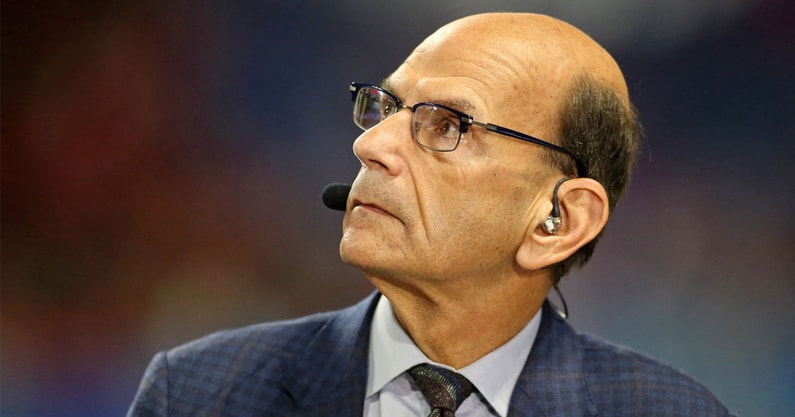Paul Finebaum criticizes ACC’s idea of uneven revenue sharing

Several Power Five conferences have recently signed massive new media deals, including the Big Ten, which signed a deal worth more than $7 billion. This led to big concerns from ACC schools like Florida State and Clemson, who have national championship aspirations but are falling behind financially.
So, those higher-tier ACC schools made a push during the conference’s spring meetings for unequal revenue sharing within the conference. Seemingly, that push worked out, and the conference agreed to success-based revenue sharing while keeping its current media deal.
There is a lot of debate about this move from the ACC, including from college football analyst Paul Finebaum. He appeared on the Marchand and Ourand podcast, where he was critical of this idea.
“It’s certainly on the table and I think it’s a bad thing to do,” Finebaum said. “If you wonder if dividing the pie up unevenly is a good idea, just ask Missouri, and Nebraska, and Texas A&M about how they dealt with Texas getting its own network about 15 years ago.”
Finebaum referred to the perceived favoritism that Texas received in the Big 12, which led to many schools getting frustrated with the conference. It made them want to leave the conference and helped spark a round of realignment.
“The Longhorn Network, which only has a few more months of existence, really did tremendous harm to the Big 12, and I think at least three members and maybe more bailed out as a result.”
There is clearly a risk that comes with a move like unequal revenue sharing. It comes down to the media deal that the ACC locked itself into, looking for long-term stability. The ACC’s media deal runs through 2036 and pays schools about $17 million annually. For comparison, SEC schools earn more than $40 million annually.
Worse, because of the length of the contract, other conferences will renegotiate their deal multiple times, earning more and more, before the ACC gets a new deal. The Grant of Rights means that even if a school like Florida State left for the SEC, they wouldn’t earn more money until the deal ran out. Because of that, pushing for unequal sharing became the model to make more money.
Top 10
- 1New
Steve, Loreal Sarkisian
Announce birth of child
- 2New
Michigan Basketball
Wolverines land big transfer commit
- 3
South Carolina vs. UConn
Odds released for National Championship game
- 4Hot
Bucky Ball
Texas A&M hires new head coach
- 5Trending
Greg Sankey
'We just want answers'
Get the On3 Top 10 to your inbox every morning
By clicking "Subscribe to Newsletter", I agree to On3's Privacy Notice, Terms, and use of my personal information described therein.
There is an example of unequal revenue sharing at the FBS level. The Mountain West pays Boise State more than its other schools. This gives the Broncos an inherent advantage and leverage over the conference. So, when other schools wanted to even out revenue, Boise State threatened to leave and filed a lawsuit against the Mountain West.
Jim Phillips on the ACC deal, conference unity
Jim Phillips, the commissioner of the ACC, opened up about the length of the ACC media deal during the conference’s spring meetings.
“It’s never good enough for anybody that’s competitive, of course. Of course not. Our schools have done a great job with the resources they’ve been given and so what I understand is anything else that we can do to close that gap will exponentially help our schools,” Phillips said.
“I think about it every day. I do. And it is what it is. You know, I don’t like going back to the past. I don’t, you know, well should we be in this position or should…when we decided to do this deal in 2016, we had 15 schools that, I think, raced to the opportunity to have a network, to lock in for 20 years and all the rest of that, and I understand times change. And so that you adjust and it’s like anything else in life. It’s not always a straight line. So, we’re figuring this thing out.”
During those spring meetings, there were reports of fighting within the ACC. However, Phillips insisted the conference is united.
“What I’ve been told is we’re all in this thing together. Emphatically. Right, we believe in the ACC. We believe where we’re going and we want to continue to work together.”